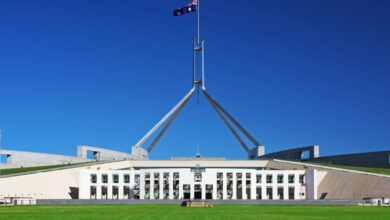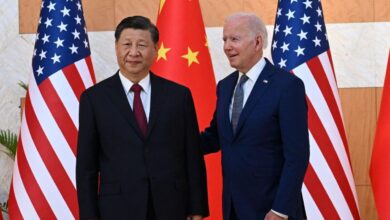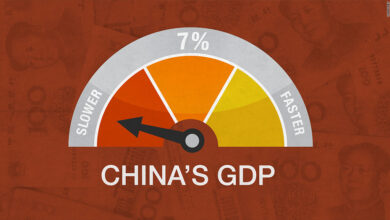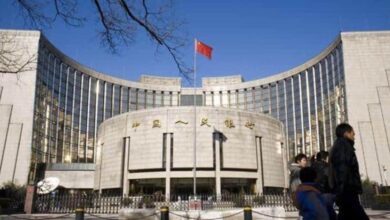
China Should Not Wait to Stimulate its Economy
China should not wait to stimulate its economy. The current economic slowdown is causing ripples across the globe, and the longer China delays action, the more severe the consequences will be. This isn’t just about China’s domestic growth; it’s about the stability of the global financial system. We’ll explore the urgent need for intervention, examine potential stimulus packages, and consider both the benefits and risks involved in a bold economic push.
This post delves into the complexities of China’s economic situation, analyzing the potential for various stimulus packages targeting infrastructure, consumer spending, and technological innovation. We’ll weigh the pros and cons of each approach, considering the potential impact on employment, inflation, and foreign investment. Furthermore, we’ll look at the global implications and discuss alternative strategies for sustainable long-term growth.
Global Economic Implications: China Should Not Wait To Stimulate Its Economy
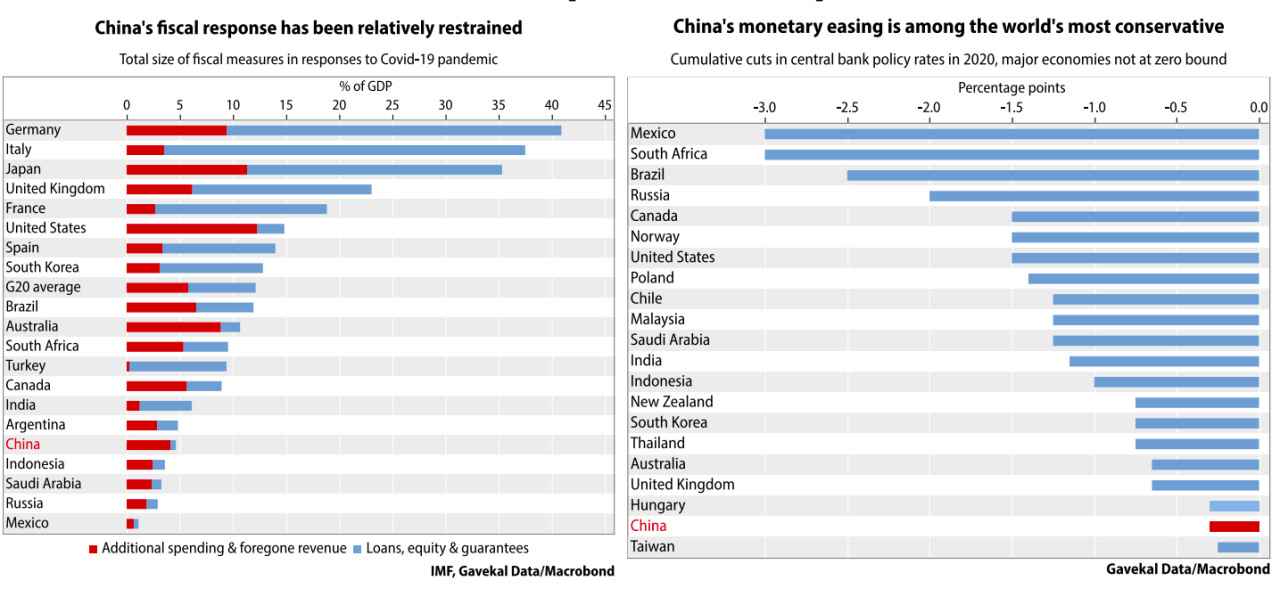
A significant Chinese economic stimulus package would undoubtedly send ripples throughout the global economy, creating a complex interplay of positive and negative consequences. The scale and nature of these effects would depend heavily on the specifics of the stimulus – its size, its focus (infrastructure, consumption, etc.), and its implementation. However, given China’s position as a global manufacturing powerhouse and a major trading partner for numerous countries, the impact is bound to be substantial.The interconnectedness of the global economy means that China’s actions rarely remain isolated.
A robust stimulus could boost global demand for raw materials and intermediate goods, benefiting resource-rich nations and countries specializing in manufacturing components. Conversely, a poorly managed stimulus, leading to inflation or asset bubbles, could trigger global financial instability and negatively impact international trade flows.
Impact on Different Regions
The impact of a Chinese stimulus would vary considerably across different regions, largely determined by their existing trade relationships with China. Southeast Asian nations, heavily reliant on Chinese exports and investment, could experience a significant economic boost from increased demand and trade. For example, countries like Vietnam and Indonesia, which supply components for Chinese manufacturing, might see increased orders and factory output.
Conversely, regions less directly linked to China’s supply chains might experience more muted effects, though global commodity price fluctuations resulting from the stimulus could still impact their economies. Developed economies, particularly those with substantial trade surpluses with China, could face challenges from increased competition and potential inflationary pressures. The EU, for instance, might see increased competition from cheaper Chinese goods, impacting certain sectors.
However, European companies heavily involved in supplying China with machinery and technology could also benefit from increased Chinese demand.
Challenges in Coordinating Global Economic Responses
Coordinating a global economic response to a Chinese stimulus presents significant challenges. Different countries have varying economic priorities and policy frameworks, making it difficult to achieve a unified approach. For example, countries concerned about inflation might adopt tighter monetary policies, potentially counteracting the stimulative effects from China. Conversely, countries eager to benefit from increased demand might adopt more expansionary fiscal policies, risking exacerbating inflationary pressures globally.
Furthermore, the lack of a global economic governance body with sufficient authority to coordinate such responses creates a risk of inconsistent and potentially conflicting national policies, potentially hindering effective management of the global economic consequences of a Chinese stimulus. The absence of a coordinated response could lead to trade disputes or protectionist measures, further complicating the situation. The experience of the 2008 financial crisis highlighted the difficulties of coordinating global economic responses, even during a period of widespread crisis.
A Chinese stimulus, while potentially beneficial in some respects, presents a similar challenge in requiring international cooperation to manage its potential global effects effectively.
Internal Challenges and Risks

China’s ambitious economic stimulus plans, while potentially impactful, face significant headwinds from within. Successfully navigating these internal challenges is crucial for the effectiveness of any stimulus package and the overall health of the Chinese economy. Political considerations, social anxieties, and the inherent risks associated with large-scale government intervention all play a significant role.The effectiveness of China’s stimulus hinges not only on the scale of the intervention but also on its ability to overcome domestic hurdles.
A poorly implemented stimulus, even one with significant financial backing, can lead to wasted resources, increased inequality, and ultimately, a less-than-optimal economic outcome. Understanding and addressing these internal challenges is therefore paramount.
Potential Political and Social Challenges
Political infighting and bureaucratic inertia could significantly delay or derail the implementation of a stimulus package. Differing opinions among various government agencies regarding the best approach, combined with the complexities of navigating China’s hierarchical political system, can create bottlenecks and slow down the disbursement of funds. Furthermore, social unrest, potentially fueled by economic inequality or dissatisfaction with government policies, could undermine public support for the stimulus and even lead to protests or disruptions.
This is particularly relevant given the recent zero-COVID policy and its lingering economic impact. A lack of transparency in the allocation of funds could also fuel public distrust and hinder the overall effectiveness of the stimulus. Public perception and trust are critical factors in the success of any large-scale government program.
Risks Associated with Stimulus Packages
The following Artikels potential risks associated with each of three hypothetical stimulus packages:
Before listing the risks, it is important to understand that the effectiveness of any stimulus depends heavily on its design and implementation. A poorly designed stimulus can exacerbate existing problems rather than solving them.
- Package 1: Infrastructure Spending:
- Risk of inefficient allocation of resources leading to “white elephant” projects (e.g., underutilized infrastructure).
- Risk of increased debt burden for local governments, potentially leading to financial instability.
- Risk of environmental damage if projects are not environmentally sustainable.
- Package 2: Tax Cuts and Subsidies:
- Risk of benefiting large corporations more than smaller businesses or individuals, exacerbating income inequality.
- Risk of tax revenue loss impacting government finances and future spending.
- Risk of inflation if the increased disposable income fuels excessive demand without corresponding supply increases.
- Package 3: Direct Cash Transfers:
- Risk of leakage – funds not reaching intended recipients due to corruption or administrative inefficiencies.
- Risk of inflation if the increased money supply is not matched by increased production.
- Risk of unintended consequences, such as individuals using the funds for non-productive purposes.
Addressing Internal Challenges to Improve Stimulus Effectiveness, China should not wait to stimulate its economy
Proactive measures to address political and social challenges are crucial. This includes fostering greater transparency in the allocation and implementation of stimulus funds, ensuring that funds reach their intended recipients efficiently and effectively. Open communication with the public about the stimulus’s goals, implementation strategy, and anticipated outcomes can help build trust and garner support. Furthermore, prioritizing projects with clear economic benefits and strong potential for job creation can help mitigate social anxieties and garner broader public support.
Investing in mechanisms to monitor and evaluate the impact of the stimulus in real-time allows for course correction and ensures that resources are used efficiently. Finally, a focus on inclusive growth, ensuring that the benefits of the stimulus are shared broadly across different segments of society, can help prevent social unrest and build a more resilient economy.
The need for China to act decisively to stimulate its economy is clear. Delaying action risks exacerbating existing problems and creating new ones on a global scale. While the choice of stimulus package will involve careful consideration of potential risks and benefits, inaction is simply not an option. A proactive and well-planned approach, coupled with long-term strategies for sustainable growth, is crucial for China’s future prosperity and the stability of the global economy.
The time for deliberation is over; the time for action is now.
China’s economic slowdown demands immediate action; waiting will only exacerbate the problem. The urgency of this situation is highlighted by contrasting events; for example, the recent news that a judge rejects bid to block citizens monitoring ballot drop boxes in Arizona shows the importance of transparency and oversight, something equally crucial for economic recovery. Proactive measures are essential for China to avoid a deeper crisis.
China’s economic slowdown demands immediate action; they shouldn’t wait for a perfect moment. The bold moves of big players, like what we saw when elon musk finally buys twitter fires top executives , show that decisive action can yield results, even if disruptive. Similarly, China needs to embrace proactive economic stimulus to avoid a deeper crisis.
China’s economic slowdown demands immediate action; they shouldn’t wait for a crisis. The current political climate, however, highlights potential distractions, like the recent news about the wife of the new special counsel on the Trump case – she donated to Biden’s campaign and produced a Michelle Obama film – which underscores how easily domestic issues can overshadow crucial global economic concerns.
This makes a proactive approach to stimulating China’s economy even more critical.

